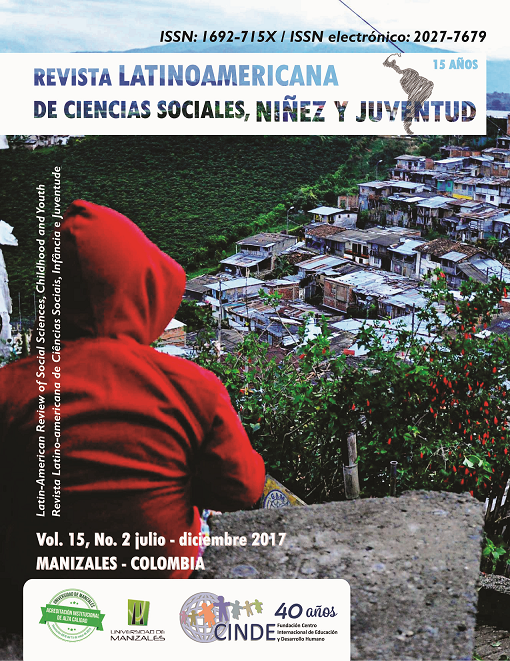Prácticas dialógicas y códigos sociolingüísticos: crisis y cambios familiares en contextos dialógicosS
Main Article Content
Abstract
(analytical): this article responds to the main objective of the research study that it describes: understand and explain the dialogical practices and the sociolinguistic codes used by families during the process of overcoming crisis situations. It is a qualitative hermeneutic study that uses the criteria of Grounded Theory and systemic and social constructionist perspectives. The testimonies were provided by members of 30 families from the municipalities of Manizales, Neira and Risaralda who voluntarily agreed to share their own experiences. It is concluded that in the transition between the crisis and subsequent change there are breakdowns in the functioning of the family and its organization, a denormalization of interaction, recognition and personal patterns, ruptures in socio-family learning and a valuing of the crisis process as having the potential to help them identify what should not be repeated in their lives.
Authors' key words: socio-familiar crisis, dialogical practices, sociolinguistic codes, contexts, changes.
Downloads
Article Details
Section

This work is licensed under a Creative Commons Attribution-NonCommercial-ShareAlike 4.0 International License.
You are free to:
- Share - copy and redistribute the material in any medium or format
- Adapt - remix, transform, and build upon the material
- The licensor cannot revoke these freedoms as long as you follow the license terms.
Under the following terms:
-
Attribution - You must give appropriate credit, provide a link to the license, and indicate if changes were made. You may do so in any reasonable manner, but not in any way that suggests the licensor endorses you or your use.
-
NonCommercial - You may not use the material for commercial purposes.
-
ShareAlike - If you remix, transform, or build upon the material, you must distribute your contributions under the same license as the original.
- No additional restrictions - You may not apply legal terms or technological measures that legally restrict others from doing anything the license permits.

